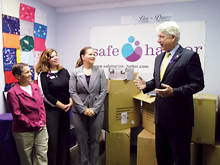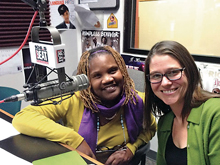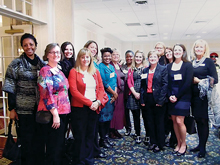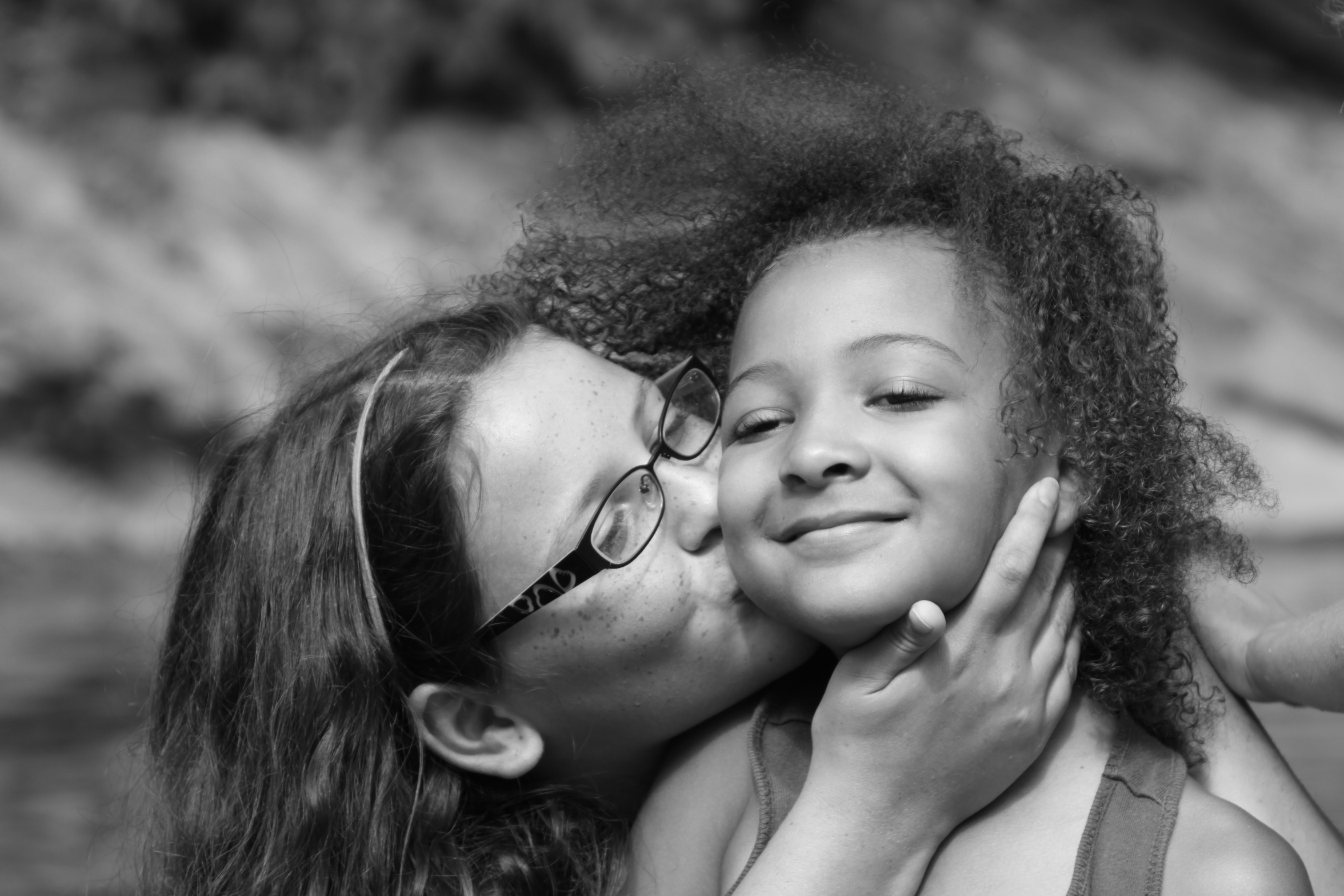Maria was sixty-five when she made the difficult and dangerous decision to leave her abusive husband. After eighteen years of marriage, she fled her home state to seek refuge with family in Richmond. Maria hoped for a fresh start, but her determination wavered and she felt unsure about separating from her husband after so many years.
That’s when Richmond-area professionals referred Maria to a Spanish-speaking counselor at Safe Harbor, a nonprofit agency in Henrico County that serves people who have been impacted by sexual and domestic violence. Maria began to experience what it felt like to live free from abuse, but her husband continually pressured her to return home. At times, she cycled from feeling empowered to end her marriage, to feeling confused and incapable of leaving. As Maria struggled with her desire to return home, her counselor from Safe Harbor worked to help educate her about the nature of domestic violence and its perpetrators.
Jordan Pye, the public awareness manager for Safe Harbor, works to educate members of the community about the nature of relationship violence. She says domestic violence is a public health issue that affects all communities, at all class levels, and people of all ages in every racial, ethnic, and religious group. Domestic violence is a pattern of abusive behaviors used by one person in a relationship as a way to exert power and control over their partner.
“Domestic violence is not an isolated incident, remedied by an anger management class,” says Pye. “It’s a vicious cycle, acted out behind curtains and closed doors.”

Pye explains it this way: “Domestic violence says, ‘I’m going to make you think, feel, and act the way I want you to – by using whatever tools and tactics it takes.’” The tactics could be physical force, verbal threats, emotional degradation, or financial control. The tools might be words, fists, manipulation, the finances, or the children. “Domestic violence is about fear and intimidation – about forcing someone into submission,” Pye says.
The Virginia Department of Health estimates that one in four women and one in eight men will experience intimate partner violence at some point in their lifetimes. Nationwide, three in ten women and one in ten men have been victims of sexual assault, physical violence, or stalking by an intimate partner. Domestic violence is common in our society because it hides beneath a facade of normalcy.
“As we’ve seen in the news recently, domestic violence touches even the most famous and privileged people in our country,” says Pye. “Many survivors feel unable to come forward for fear the stigma and cruelty they might encounter from their own friends and family, the media, the legal system, and others.”
Those we don’t typically think of as survivors may face the biggest obstacles to seeking support. For example, men rarely report their abuse for fear they won’t be believed. Pye notes that lesbian, gay, bisexual, and transgender domestic abuse survivors face unique prejudices when seeking help for intimate partner violence.

Research shows that undocumented members of immigrant and refugee communities are at an increased risk for relationship violence. Victims of human trafficking face language barriers and have few places to turn. Individuals who have a disability and adults who experience abuse in later life encounter different obstacles. “There is no typical survivor, and there is no single solution to breaking the cycle of domestic violence,” says Pye.
Safe Harbor’s mission is to empower survivors of sexual and domestic violence to transform their lives, and promote healthy relationships. Since Safe Harbor opened as an emergency shelter in 2000, the agency has grown to provide critical free services that include confidential counseling for adults and children, and community support groups offered in English as well as Spanish.

Safe Harbor staff and volunteers stand alongside survivors while they undergo medical examinations in emergency rooms, and when they appear before judges to request orders of protection from their abusers. Safe Harbor also collaborates with partner agencies to operate a 24-hour crisis hotline serving Richmond and its surrounding counties.
Last year, the agency provided services to approximately a thousand survivors of abuse and violence. On an average day, Safe Harbor works with more than forty clients.
For Safe Harbor’s clients like Maria, receiving unconditional support during a confusing time enables them to transform their lives. Ultimately, Maria decided she wanted to spend the next years of her life differently from her past, and she found the support and resources to divorce her husband.
About her counselor at Safe Harbor, Maria said: “She never told me what to do. Instead, she helped me to understand how much the abuse affected my health, my life, and that I had every right to show myself love and respect and be happy.”
Pye says although the issue of domestic violence is complex and multi-faceted, everyone has the power to take action.
“Intimate partner violence is a community problem, and we all can prevent it,” Pye says. “We can change the way we talk about abuse and violence in our daily lives. We can reach out when we notice red flags, before it’s too late. We can tell others that we will always support them, no matter what.”
Pye adds that encouraging survivors to share their stories can promote healing, and having honest conversations about these difficult issues empowers everyone to create real change.
“Let’s talk about what healthy, loving and consensual relationships look like, and how our community can encourage them,” Pye says. “Violence is a choice, and we can choose to end it.”
![]()
Support Safe Harbor
Help Safe Harbor provide security and hope to the Richmond community by organizing a fundraiser or donation drive, donating food, household, or personal item, or becoming a trained volunteer.
Donations of toilet paper, paper towels, deodorant, body wash, and laundry detergent can be dropped off Tuesday through Thursday, 10 a.m. to 3 p.m. at our Community Office: Suite 201, 2006 Bremo Road, Richmond, VA 23226 (in the Richmond Medical Complex).
Safe Harbor is in need of some women’s clothing for residents at its shelter for victims of human trafficking who often arrive with only the clothes on their back. If you have any gently worn (no holes, rips, stains, etc.) stylish women’s clothing for between the ages of 18 and 30, such as jeans, casual tops, sweaters, and athletic clothing, please consider donating it to Safe Harbor. There is a need for women’s sizes M, L , 3, 4, 5 and 14. Please call 804-249-9470 ext. 23 if you are interested in donating.
The human trafficking shelter is in need of new, unopened twin sheet sets, twin blankets, and pillows. If you are out this weekend and have the means, please consider picking some of these items up. These items are helpful when a new client joins the residential program and helps them feel more at home. Donations can be delivered to the community office, located at 2006 Bremo Road, Suite 201, Richmond, VA 23226 from Tuesday through Thursday from 10am to 3pm. Thank you for all for your continued support in what we do! We are so grateful.
To learn more about Safe Harbor and ways you can help, visit safeharborshelter.com.
To talk to someone about your experience with domestic and/or sexual violence, please call Safe Harbor’s confidential helpline: (804) 612-6126.




